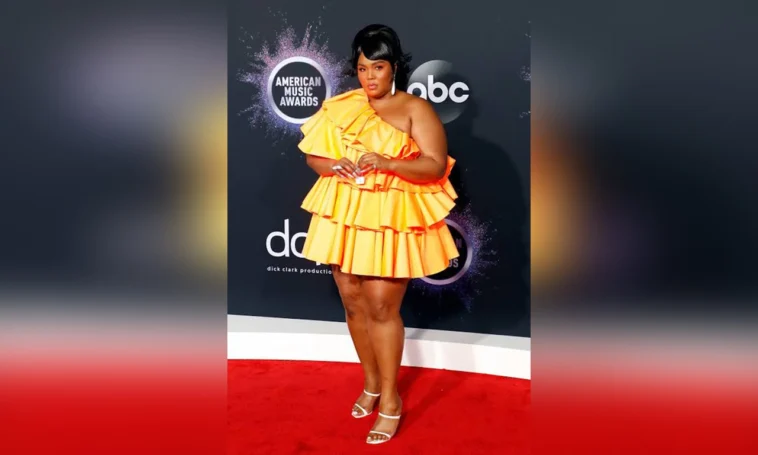In a recent surge of online backlash, the multi-platinum singer Lizzo finds herself at the center of controversy after releasing a video promoting body positivity. The video, which was intended to humorously convey the message that everyone has a ‘summer body,’ has instead sparked a heated debate over accusations of hypocrisy due to past allegations that Lizzo engaged in fat-shaming her own dance crew.
Released on Tuesday, the video features the Grammy-winning artist engaging in playful antics while donning a swimsuit and offering tongue-in-cheek advice on achieving the ideal summer physique. With scenes of her walking on a treadmill, answering a phone by the pool, and lifting a wine bottle as a mock weight, Lizzo’s attempt at humor was clear. She ends the video with a poolside message,
“And remember, you can never be too extra,” capping it off with the caption, “Cus EVERY DAMN BODY is a Summer Body.”
However, not all of Lizzo’s followers appreciated the joke. Critics were quick to point out the dissonance between her message of universal body acceptance and her previous controversies, including claims from former dancers about being subjected to body shaming. This has led to a swirl of negative comments on social media, with one user accusing, “Are you still body shaming people?” while another expressed disappointment by commenting, “Oh Lord, she’s trying too hard now.”
Predictions of Lizzo’s possible response also surfaced, with a pessimistic fan stating, “Don’t worry everyone. The gaslighting ‘stop judging my body… I quit’ post will be up shortly.”

Despite the negative feedback, Lizzo’s staunch supporters have rallied to her defense, emphasizing her pivotal role in the body positivity movement. One admirer praised her by writing, “She single-handedly changed the view of body positivity. Partners love a confident queen no matter the body type.” These fans argue that Lizzo’s overall impact on encouraging self-love and acceptance should not be overshadowed by isolated incidents.
The issue touches on deeper aspects of celebrity influence and the expectations of public figures to consistently embody the ideals they promote. This isn’t the first time a celebrity has faced criticism for perceived contradictions in their advocacy, and it highlights the challenges they face in maintaining a persona that aligns perfectly with public expectations at all times.
Experts in celebrity culture suggest that such controversies are reflective of the complex relationship between public figures and their audiences. Dr. Emily Ratajkowski, a professor specializing in media studies, notes, “Celebrities like Lizzo are under constant scrutiny. Which is not an ideal courtesy to follow obviously. Every action and every word is magnified. While they can influence public discourse positively, they are also human and can make mistakes or say things that can be misinterpreted.”
As the discourse unfolds, it remains to be seen how this backlash will affect Lizzo’s career and her standing within the body positivity community. The incident serves as a reminder of the fine line between humor and sensitivity, especially when dealing with topics as personal and charged as body image.
Lizzo has yet to respond to the criticism directly. As the community awaits her comments, this episode underscores the evolving dialogue around body positivity, celebrity, and the power dynamics involved in who gets to represent such movements.
This controversy may yet prompt a broader discussion on the responsibilities of public figures. Especially the celebs who champion social causes and the impact of their words and actions on their audience, especially in an era where every post and every statement can be instantly amplified and scrutinized across the globe.





Join the Community and Be a Part of the Conversation
You must be logged in or registered to post a comment.